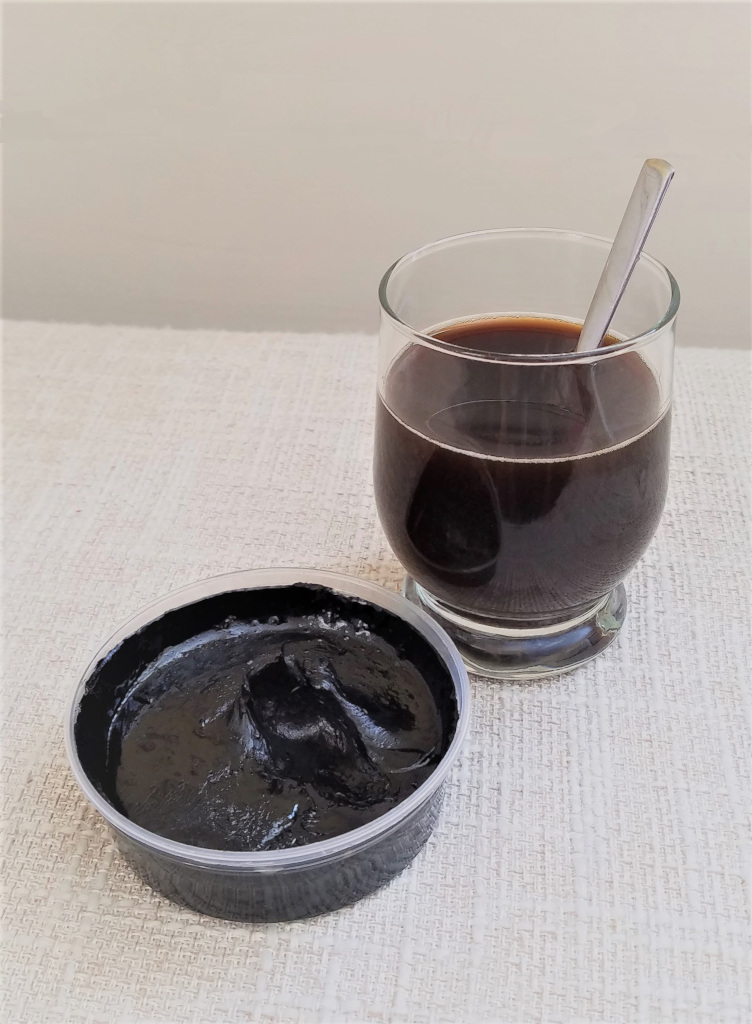Introduction
Ginger, a root native to Southeast Asia, has been used for centuries in various cultures for its culinary and medicinal properties. Its distinct flavor and aroma have made it a popular ingredient in cuisines around the world. However, ginger is not just a flavorful spice; it also offers a wide range of health benefits that have been recognized and celebrated throughout history.
The purpose of this comprehensive guide is to delve into the amazing benefits of ginger and shed light on its potential to improve our well-being. Whether you are seeking relief from nausea, looking to enhance digestion, aiming to shed a few pounds, or simply wanting to boost your overall health, ginger may hold the key to achieving your goals.
To capture your attention and set the tone for this exploration, let’s take a moment to admire a captivating image of ginger. Picture a vibrant, knobby root with a golden hue, exuding warmth and vitality. This humble spice has the power to transform not only our meals but also our health.

Ginger for Nausea
One of the most well-known benefits of ginger is its ability to alleviate nausea. Whether it’s the queasiness associated with motion sickness, morning sickness during pregnancy, or the side effects of chemotherapy, ginger has been a trusted remedy for centuries.
Scientific studies have shown that ginger can effectively reduce the severity and frequency of nausea and vomiting. For example, a study published in the Journal of the American Medical Association found that ginger was more effective than a placebo in reducing nausea caused by chemotherapy.
So, how does ginger work its magic? Ginger contains compounds called gingerols and shogaols, which have anti-inflammatory and antioxidant properties. These compounds help soothe the digestive system and reduce the production of certain chemicals that trigger nausea.
Real-life examples further demonstrate the effectiveness of ginger for nausea relief. Many individuals have reported feeling less queasy and more comfortable after consuming ginger in various forms, such as ginger tea, ginger candies, or even raw ginger slices.
To give you a visual representation of ginger’s power in combating nausea, imagine a cup of warm ginger tea being sipped by someone who was previously feeling nauseous. The steam rises, carrying the comforting aroma of ginger, while the person’s face relaxes, their discomfort gradually fading away.

Ginger for Digestion
Another remarkable benefit of ginger lies in its ability to improve digestion and alleviate digestive issues. Ginger has long been used as a digestive aid in traditional medicine systems like Ayurveda and Traditional Chinese Medicine.
When consumed, ginger stimulates the production of digestive enzymes, which play a crucial role in breaking down food and facilitating nutrient absorption. This can help prevent common digestive problems such as indigestion, bloating, and stomach discomfort.
Furthermore, ginger possesses carminative properties, meaning it can help relieve gas and reduce bloating. It relaxes the muscles of the gastrointestinal tract, allowing trapped gas to be released more easily.
Adding ginger to your meals or incorporating it into your diet in the form of ginger tea can be a simple yet effective way to support your digestive system. Imagine a plate of delicious stir-fried vegetables infused with the warm, aromatic essence of ginger. As you savor each bite, you can feel your digestion becoming smoother and more efficient.

Ginger for Weight Loss
If you’re on a weight loss journey, ginger may become your new best friend. This versatile spice has been found to have properties that can support weight loss efforts.
Ginger has thermogenic properties, meaning it can increase the body’s metabolic rate and promote calorie burning. This can potentially help you burn more calories throughout the day, even at rest.
Additionally, ginger has been shown to reduce appetite and curb cravings, which can be beneficial for those trying to control their calorie intake. By incorporating ginger into your meals or consuming ginger tea, you may find it easier to stick to a healthy eating plan.
Studies have also indicated that ginger can help regulate blood sugar levels, which is important for weight management. Stable blood sugar levels can prevent spikes and crashes in energy, reducing the likelihood of overeating or reaching for unhealthy snacks.
Imagine a refreshing ginger-infused smoothie that not only tantalizes your taste buds but also supports your weight loss goals. As you sip on this invigorating beverage, you can feel a sense of satisfaction and nourishment, knowing that you are taking a step towards a healthier, fitter you.
Ginger Health Benefits
Beyond its impact on nausea, digestion, and weight loss, ginger offers a myriad of other health benefits. One of the key properties of ginger is its anti-inflammatory effect.
Inflammation is a natural response of the body to protect itself from injury or infection. However, chronic inflammation can contribute to various health conditions, including arthritis, heart disease, and certain types of cancer.
Ginger contains potent anti-inflammatory compounds that can help reduce inflammation in the body. Studies have shown that ginger can inhibit the production of inflammatory chemicals and enzymes, providing relief for those suffering from inflammatory conditions.
Furthermore, ginger has been found to possess analgesic properties, meaning it can help alleviate pain. Whether it’s joint pain, muscle soreness, or menstrual cramps, ginger’s natural pain-relieving abilities can offer much-needed comfort.
Additionally, ginger has been shown to improve blood circulation, which is essential for overall health. By enhancing blood flow, ginger can support cardiovascular health and promote the delivery of oxygen and nutrients to various parts of the body.
Lastly, ginger has immune-boosting properties that can help strengthen the body’s defense against infections and illnesses. It stimulates the production of immune cells and enhances their activity, making you less susceptible to common ailments.
Imagine a bottle of ginger-infused oil, ready to be used for a soothing massage. As the oil is gently applied to your skin, you can feel the tension melting away, the inflammation subsiding, and a renewed sense of vitality coursing through your body.
Health Benefits of Ginger
Ginger for Nausea
Ginger has been used for centuries as a natural remedy for nausea and vomiting. Its effectiveness in alleviating various types of nausea has been well-documented and supported by scientific research.
One of the most common uses of ginger for nausea is in the treatment of motion sickness. Whether you’re traveling by car, plane, or boat, ginger can help reduce the feelings of queasiness and dizziness associated with motion sickness. Studies have shown that ginger can be as effective as over-the-counter medications in relieving motion sickness symptoms.
Pregnant women experiencing morning sickness can also benefit from ginger. The hormonal changes during pregnancy can cause nausea and vomiting, especially during the first trimester. Ginger has been found to be a safe and effective natural remedy for morning sickness, providing relief without any harmful side effects.
Furthermore, ginger has shown promise in reducing chemotherapy-induced nausea and vomiting. Cancer patients undergoing chemotherapy often experience severe nausea as a side effect of the treatment. Studies have demonstrated that ginger can significantly reduce chemotherapy-induced nausea and improve the overall quality of life for these patients.
Real-life examples further illustrate the effectiveness of ginger for nausea relief. Many individuals have shared their success stories of finding relief from nausea by consuming ginger in various forms. Whether it’s sipping on a warm cup of ginger tea, sucking on ginger candies, or adding fresh ginger to meals, ginger has proven to be a reliable and natural solution for nausea.
Ginger for Digestion
Ginger has long been recognized for its ability to improve digestion and alleviate digestive issues. It has been used in traditional medicine systems for centuries to support healthy digestion.
One of the key ways ginger aids digestion is by stimulating the production of digestive enzymes. These enzymes play a crucial role in breaking down food and facilitating the absorption of nutrients in the digestive tract. By enhancing enzyme activity, ginger helps ensure that the body can effectively extract and utilize the nutrients from the food we consume.
In addition to promoting enzyme production, ginger also helps relax the muscles of the gastrointestinal tract. This can help alleviate symptoms of indigestion, such as bloating, gas, and stomach discomfort. By reducing muscle spasms and promoting smooth muscle contractions, ginger helps food move through the digestive system more efficiently.
For those struggling with indigestion or other digestive issues, incorporating ginger into meals or consuming ginger tea can be beneficial. Adding freshly grated ginger to stir-fries, soups, or marinades can infuse dishes with its distinctive flavor and digestive benefits. Alternatively, sipping on a cup of ginger tea after a meal can help soothe the digestive system and promote healthy digestion.
Ginger for Weight Loss
If you’re looking to shed a few pounds, ginger may be a valuable addition to your weight




